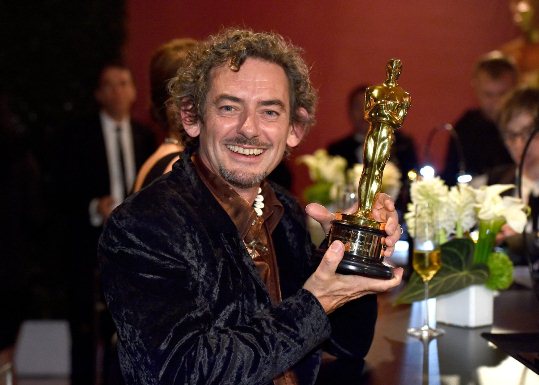David White.
Documentaries are often made on tight budgets and with limited crew. Along with the pressure of capturing footage as it unfolds, this can often mean sound quality is “a bit of an afterthought”, according to sound mixer and editor David White.
"The capturing of sound on location for documentaries is extremely difficult," White tells IF.
“I know from firsthand experience having tried to shoot documentaries myself. Trying to capture the story that’s going on in front of the camera occupies a lot of your headspace.”
However, the quality of the sound that is captured on location has large implications for the time and procedures required in post-production, he says.
White will discuss the consequences of poor sound for post, as well as solutions, at the Ozdox Documentary Forum's "LISTEN UP! A Masterclass on Sound" tomorrow evening.
One issue that White says is commonplace in documentary is "wild variations" in sound quality from take to take, often sourced from different inputs.
In many cases, White finds sound is captured using just a camera mic. “You can maybe get away with it, but it’s not very good sound. In post what you wind up doing is a lot of cleaning up to make it acceptable,” he says.
Filming documentaries on Go-Pros and DSLRs is also becoming also more common. However, generally these don’t have great microphones and can often pick up handling noise, he says.
White believes many issues with sound capture can be avoided through planning and thinking about sound requirements in pre-production. In particular, he urges documentary filmmakers to ensure they have adequate ways to capture sound beyond the camera itself, such as a boom or radio mics.
Planning how background or extraneous noise can be reduced when shooting in noisy situations is also important, says White.
Extraneous noise can often impact how well dialogue can be smoothed out in post, and can create issues with editing sequences or interviews.
“Planning is a very crucial stage that is often forgotten,” he says. “Without planning you actually tie yourself to unsatisfactory results just to make it smooth.”
However, White concedes that planning can only get you so far, as the unexpected does happen on location. In this way, budgets need to adequately and realistically cover post-production costs.
“I’m very keen for the funding bodies to pay a little bit more attention to what’s required in sound post, and stop approving budgets where there’s not some sort of realistic amount of resources being put into sound,” he says.
Another area that can affect the time needed for sound post-production is editorial. White says picture editors can sometimes layout tracks without sound in mind. He says it’s also important that editors supply handles, especially when there is background noise that needs to be smoothed out across shots.
“If the shot is five seconds, then from a sound perspective, we want at least 10 seconds either side of that,” he says.
White won the Academy Award for Best Sound Editing for Mad Max: Fury Road earlier this year, with fellow sound editor Mark Mangini.
He says working on the film was “a brilliant experience”, which involved a lot of sound creation, including foley, dialogue rerecording, and sound effects.
“George Miller is the most intelligent person I’ve ever met,” he says. “He and Margaret Sixel, who was the main editor, [were] just a brilliant team.”
White calls himself a “storyteller” by trade, and in that way, he says he finds working on dramas like Mad Max satisfying, as sound helps to support the narrative.
“There’s a lot I do in the soundtrack, and that other professionals like myself do, to aide in the telling of the story: by choices of sound, by quality of sound, by how loud the music is, where the music comes in. There are just so many factors that can help tell the story, help communicate to the audience what’s going on.”
However, he equally enjoys doing the same with documentaries.
“It’s the same thing. You’re still telling a story. You’ve got to make choices,” he says. “I’m very passionate about sound.”
White will be joined at the masterclass by three other panelists, including Ross Boyer from Lemac who will showcase the latest sound equipment technology.
Experienced documentary sound recordists Leo Sullivan and Phillip Myers will also reflect on the changing presences in the industry, from reality TV to small crew documentaries, and present techniques for capturing good location sounds.
WHEN: Tuesday July 12 
6pm for 6.30pm start
WHERE: AFTRS Theatre, Entertainment Quarter, 130 Bent St, Moore Park NSW
Entry by donation, includes refreshments.
Ozdox events are streamed live at: http://live.aftrs.edu.au/ozdox/


